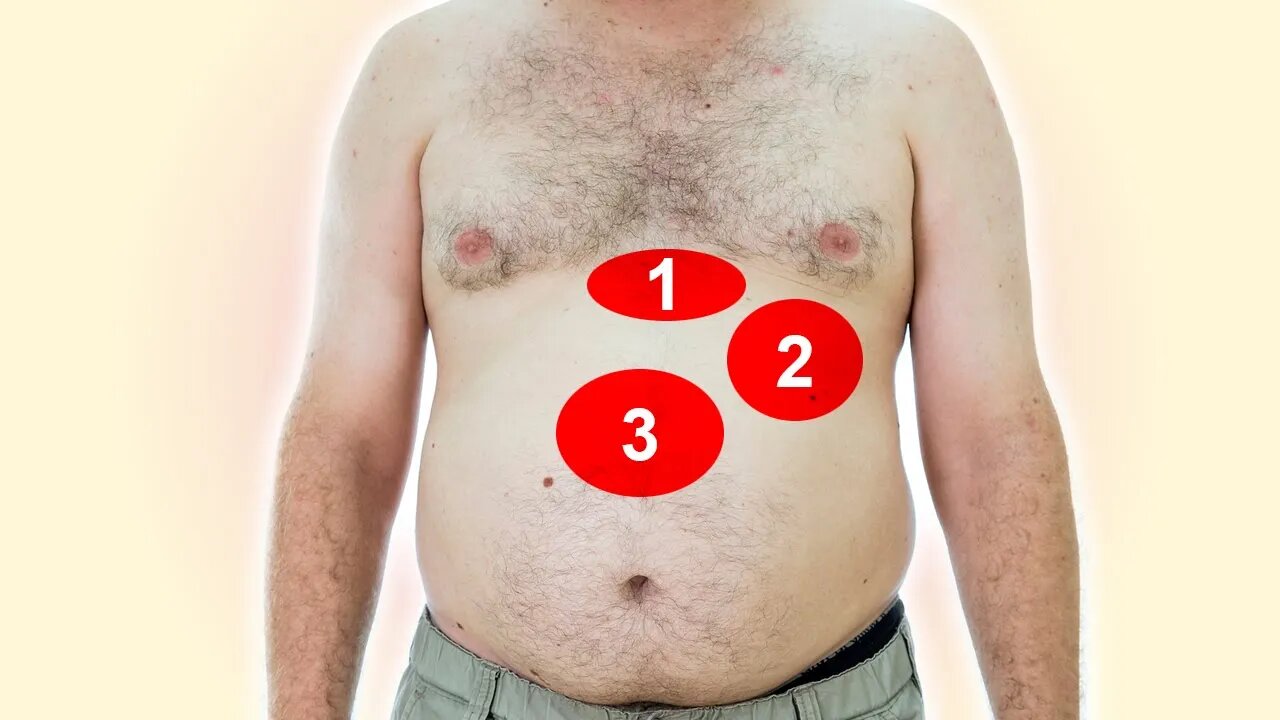Premium Only Content

3 Types of Abdominal Pain and What They Mean
Abdominal pain is a common problem caused by simple things, like poor digestion or constipation, and usually disappears without treatments.
The most recommended is to rest, avoid fatty or sugary foods, and drink plenty of water.
However, since the abdomen has many essential organs and nerve endings, many factors can cause pain in different areas of this body part.
Let's learn everything about upper abdominal pain, something important that needs to be treated immediately.
Sharp upper abdominal pain: excess gas
If you have a bothersome pain in the upper part of your stomach or abdomen and feel bloated, as if something was moving in your stomach, that means you have an excess of gas.
Pain in the lower part of the chest or in the upper abdominal area: heartburn
Acidity causes burning pain in the lower chest and upper abdomen. You may also feel a burning sensation in your throat and, sometimes, even an acid taste in your mouth.
Intense pain in the upper abdomen: ulcers
Ulcers can be one of the causes of acute pain in the upper abdomen and stomach. They appear when the stomach lining is damaged but can also be caused by potent analgesics.
As we always say, to avoid all these issues, keep a healthy diet and eat food that's rich in fiber, like fresh fruits and vegetables.
If you think you have any of these symptoms, talk to a doctor immediately so they can examine you and prescribe the best treatment for your case.
Now tell us: have you ever had any of the abdominal pains we saw today? Share your experience with us.
0:00 Causes of Abdominal Pain
0:32 Sharp upper abdominal pain
1:12 Pain in the lower part of the chest or in the upper abdominal area
1:49 Intense pain in the upper abdomen
----------------------------------------
Facebook: https://bit.ly/38BWbw3
Pinterest: https://bit.ly/2Irvwa6
Disclaimer: The materials and the information contained on Natural Cures channel are provided for general and educational purposes only and do not constitute any legal, medical or other professional advice on any subject matter. These statements have not been evaluated by the FDA and are not intended to diagnose, treat or cure any disease. Always seek the advice of your physician or other qualified health provider prior to starting any new diet or treatment and with any questions you may have regarding a medical condition. If you have or suspect that you have a medical problem, promptly contact your health care provider.
-
 3:55
3:55
Natural Cures
1 year ago $0.87 earnedDrink This Tea Tonight to Flush Out All The Toxins from the Body
3.43K4 -
 12:39
12:39
BobandBrad
2 years agoShoulder Pain Types Explained
852 -
 10:17
10:17
BobandBrad
3 years agoKnee Pain Types Explained
63 -
 1:49:10
1:49:10
The Quartering
5 hours agoTrump DESTROYS Zelensky To His Face, Trump Assassin Accomplice & Epstein File Debacle
107K60 -
 15:36
15:36
Tactical Advisor
5 hours agoMUST HAVE AR15 Upgrades for Under $100
61K3 -
 28:11
28:11
Rethinking the Dollar
6 hours agoTrump(verse): Trump Family Going All In On Crypto
3861 -
 21:49
21:49
Mrgunsngear
2 hours ago $0.08 earnedBarrett M107A1 .50 Cal Semi-Automatic Rifle Review
1.49K2 -
 1:14:18
1:14:18
Tucker Carlson
6 hours agoDr. Richard Bosshardt Reveals Deadly Truth: Most Surgeons Aren’t Fit to Practice. Here’s Why.
133K78 -
 3:48:32
3:48:32
Right Side Broadcasting Network
8 hours agoLIVE REPLAY: Pres. Trump and Ukrainian President Zelenskyy Meet and Hold a Press Briefing - 2/28/25
244K161 -
 2:59:13
2:59:13
The Charlie Kirk Show
6 hours agoTrump vs. Zelensky Reaction + The Epstein Misfire + Charlie vs. Newsom | Schimel, Marlow, Baller | 2.28
193K66